Share
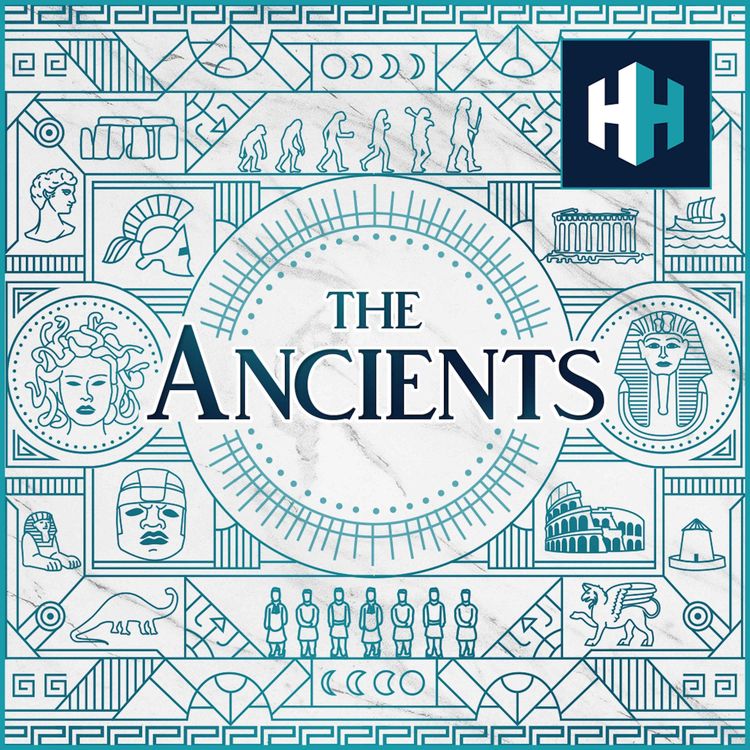
Dan Snow's History Hit
The Vandals
Known for bringing about the fall of the Western Roman Empire - the Vandals have a reputation for violence, destruction, and conquering. Moving from Eastern Europe across Gaul, and eventually taking Carthage, their actions have been immortalised in Christian texts and Western Language. But what do we actually know about the Vandals, and how did their behaviour bring one of the most powerful empires of all time to an eventual collapse?
In this episode, Tristan welcomes Professor Andy Merrills to the podcast to help explain the important role the Vandals played in history. Looking at their long migration across the European continent, their arrival in Carthage, and the archaeological evidence discovered - who were the Vandals, and were they really as destructive as history tells us?
Discover the past with exclusive history documentaries and ad-free podcasts presented by world-renowned historians from History Hit. Watch them on your smart TV or on the go with your mobile device. Get 50% off your first 3 months with code DANSNOW sign up now for your 14-day free trial.
We'd love to hear from you! You can email the podcast at ds.hh@historyhit.com.
You can take part in our listener survey here.
More episodes
View all episodes
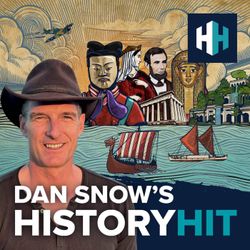
1755. The Great Famine
39:34||Ep. 1755In the late 19th century, Ireland suffered a potato blight that became a mass catastrophe. Today, we explore the conditions that left millions vulnerable, and assess the role of the British government in shaping the crisis.For this, we're joined by Professor Christine Kinealy, founding Director of Ireland's Great Hunger Institute at Quinnipiac University.Produced by James Hickmann and edited by Dougal Patmore.Dan Snow's History Hit is now available on YouTube! Check it out at: https://www.youtube.com/@DSHHPodcastSign up to History Hit for hundreds of hours of original documentaries, with a new release every week and ad-free podcasts. Sign up at https://www.historyhit.com/subscribe.You can also email the podcast directly at ds.hh@historyhit.com.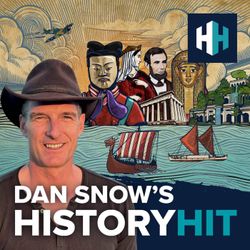
1754. How Did Three Samurai Warlords Unite Japan?
54:05||Ep. 1754Today, we dive into the chaotic final act of Japan’s Warring States period, and hear about the three warlords who brought it to an end. Oda Nobunaga, the ruthless innovator who shattered the status quo on the battlefield. Toyotomi Hideyoshi, the peasant-born schemer who climbed from the lowest social ranks to the very top of Japan's hierarchy. And Tokugawa Ieyasu, the patient survivor who outlasted them all and built a shogunate that would rule Japan for over 250 years.Joining us for this is Chris Harding, a cultural historian of Japan, India and East-West connections, based at the University of Edinburgh.Produced by James Hickmann and edited by Dougal Patmore.Dan Snow's History Hit is now available on YouTube! Check it out at: https://www.youtube.com/@DSHHPodcastSign up to History Hit for hundreds of hours of original documentaries, with a new release every week and ad-free podcasts. Sign up at https://www.historyhit.com/subscribe.We'd love to hear your feedback - you can take part in our podcast survey here: https://insights.historyhit.com/history-hit-podcast-always-on.You can also email the podcast directly at ds.hh@historyhit.com.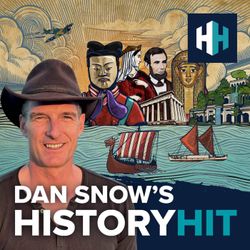
1753. Whaling
52:52||Ep. 1753The history of whaling is complicated. At its height in the 18th and 19th centuries, whaling was a global enterprise built on perilous voyages, long seasons at sea, and a fierce chase for oil and baleen that illuminated streets and homes and lubricated the industrial revolution. In doing so, obsessed nations like Britain, Norway and America hounded whale populations to the brink, decimating populations and altering marine ecosystems forever. But it's important to remember that this industry also has a rich social history. Whaling sustained communities across the globe, providing work, culture and a crucial way of life for working people in coastal regions and on remote islands like Shetland off the coast of Scotland. In this episode, Dan heads to Dundee, once a hub of the whaling industry, to explore both the devastating ecological impact and the rich human story to give us a fuller understanding of the history of whaling. He speaks to the curators at the South Georgia Museum, Jayne Pierce and Helen Balfour, as well as Richard Sabin from the Natural History Museum and also one of Shetland's last remaining whalers, Gibby Fraser. You can explore more at https://whalersmemorybank.sgmuseum.gs/ to read through testimonies from other whalers, see incredible archive images and learn more about whales in the Arctic and Antarctic. Produced by Mariana Des Forges and edited by Dougal PatmoreDan Snow's History Hit is now available on YouTube! Check it out at: https://www.youtube.com/@DSHHPodcastSign up to History Hit for hundreds of hours of original documentaries, with a new release every week and ad-free podcasts. Sign up at https://www.historyhit.com/subscribe.You can also email the podcast directly at ds.hh@historyhit.com.
1752. The San José: The World's Most Valuable Shipwreck
31:42||Ep. 1752In 1708, a gigantic Spanish galleon laden with gold, silver and emeralds was blown apart by British cannon fire off the coast of Cartagena. More than 300 sailors went down with it. Three centuries later, the wreck of the San José has resurfaced at the centre of a global legal storm, as nations, corporations and communities clash over who truly owns one of the world's most valuable shipwrecks.To hear all about this, we're joined by Julian Sancton, author of 'Neptune's Fortune: The Billion-Dollar Shipwreck and the Ghosts of the Spanish Empire'.Produced by James Hickmann and edited by Dougal Patmore.We'd love to hear your feedback - you can take part in our podcast survey here: https://insights.historyhit.com/history-hit-podcast-always-on.You can also email the podcast directly at ds.hh@historyhit.com.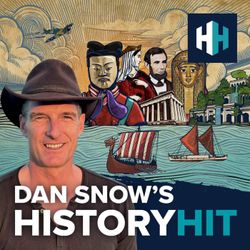
1751. Joan of Arc
01:01:28||Ep. 1751Teenage peasant, visionary commander, convicted heretic, national saint - Joan of Arc's life reads like a legend. Today, Dan digs past that legend to understand who Joan really was, and why her story still provokes devotion, debate and reinvention 6 centuries later.Produced by Mariana Des Forges and edited by Dougal Patmore.Dan Snow's History Hit is now available on YouTube! Check it out at: https://www.youtube.com/@DSHHPodcastSign up to History Hit for hundreds of hours of original documentaries, with a new release every week and ad-free podcasts. Sign up at https://www.historyhit.com/subscribe.We'd love to hear your feedback - you can take part in our podcast survey here: https://insights.historyhit.com/history-hit-podcast-always-on.You can also email the podcast directly at ds.hh@historyhit.com.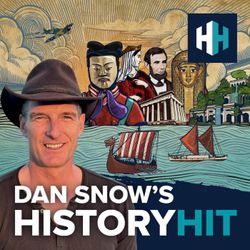
1750. The Dambusters Raid Explained
44:43||Ep. 1750In May 1943, the RAF launched one of the Second World War’s most audacious missions: the Dambusters Raid. Today, we follow the raid as it unfolded, hearing about the remarkable people involved and examining its lasting impact.Produced by Mariana Des Forges and edited by Dougal Patmore.Dan Snow's History Hit is now available on YouTube! Check it out at: https://www.youtube.com/@DSHHPodcastSign up to History Hit for hundreds of hours of original documentaries, with a new release every week and ad-free podcasts. Sign up at https://www.historyhit.com/subscribe.We'd love to hear your feedback - you can take part in our podcast survey here: https://insights.historyhit.com/history-hit-podcast-always-on.You can also email the podcast directly at ds.hh@historyhit.com.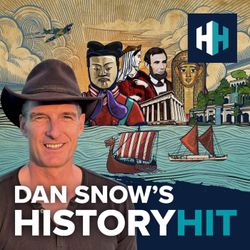
1749. The Battle of Bosworth
44:28||Ep. 1749In August 1485, the would-be king Henry Tudor went head-to-head with King Richard III - the final, decisive battle of the Wars of the Roses. Only one of these men would leave the battlefield alive, and this bloody clash between Houses York and Tudor would decide the future of Britain.Joining us is Matt Lewis, host of the Gone Medieval podcast, to take us through this climactic moment in British history.Produced by Mariana Des Forges and edited by Dougal Patmore.Dan Snow's History Hit is now available on YouTube! Check it out at: https://www.youtube.com/@DSHHPodcastSign up to History Hit for hundreds of hours of original documentaries, with a new release every week and ad-free podcasts. Sign up at https://www.historyhit.com/subscribe.We'd love to hear your feedback - you can take part in our podcast survey here: https://insights.historyhit.com/history-hit-podcast-always-on.You can also email the podcast directly at ds.hh@historyhit.com.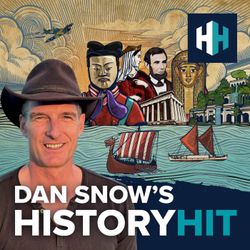
1748. The Top Assassination Attempts on Hitler
41:20||Ep. 1748What does it take to kill a dictator? In this episode, we explore the most dramatic assassination attempts on Adolf Hitler. From Georg Elser, the lone-wolf carpenter who built a bomb by hand, to the Polish underground’s relentless plots under occupation, and finally Claus von Stauffenberg, the one-eyed officer whose briefcase bomb nearly took out the Führer.Joining us for this is Roger Moorhouse, author of 'Killing Hitler'.Produced by James Hickmann and edited by Dougal Patmore.Dan Snow's History Hit is now available on YouTube! Check it out at: https://www.youtube.com/@DSHHPodcastSign up to History Hit for hundreds of hours of original documentaries, with a new release every week and ad-free podcasts. Sign up at https://www.historyhit.com/subscribe.We'd love to hear your feedback - you can take part in our podcast survey here: https://insights.historyhit.com/history-hit-podcast-always-on.You can also email the podcast directly at ds.hh@historyhit.com.
1747. The German Peasants' War
43:20||Ep. 1747In the early 16th century, tens of thousands of peasants across the German-speaking lands rose up against their lords. Fuelled by economic hardship, religious upheaval and radical new ideas about justice and freedom, the German Peasants’ War became the largest popular revolt in European history before the French Revolution.In this episode, we're joined by Professor Lyndal Roper to explore why the rebellion erupted, how it spiralled into brutal violence and how its failure reshaped Europe for centuries to come.Professor Roper's book is called 'Summer of Fire and Blood: The German Peasants' War'.Produced by James Hickmann and edited by Dougal Patmore.We'd love to hear your feedback - you can take part in our podcast survey here: https://insights.historyhit.com/history-hit-podcast-always-on.You can also email the podcast directly at ds.hh@historyhit.com.